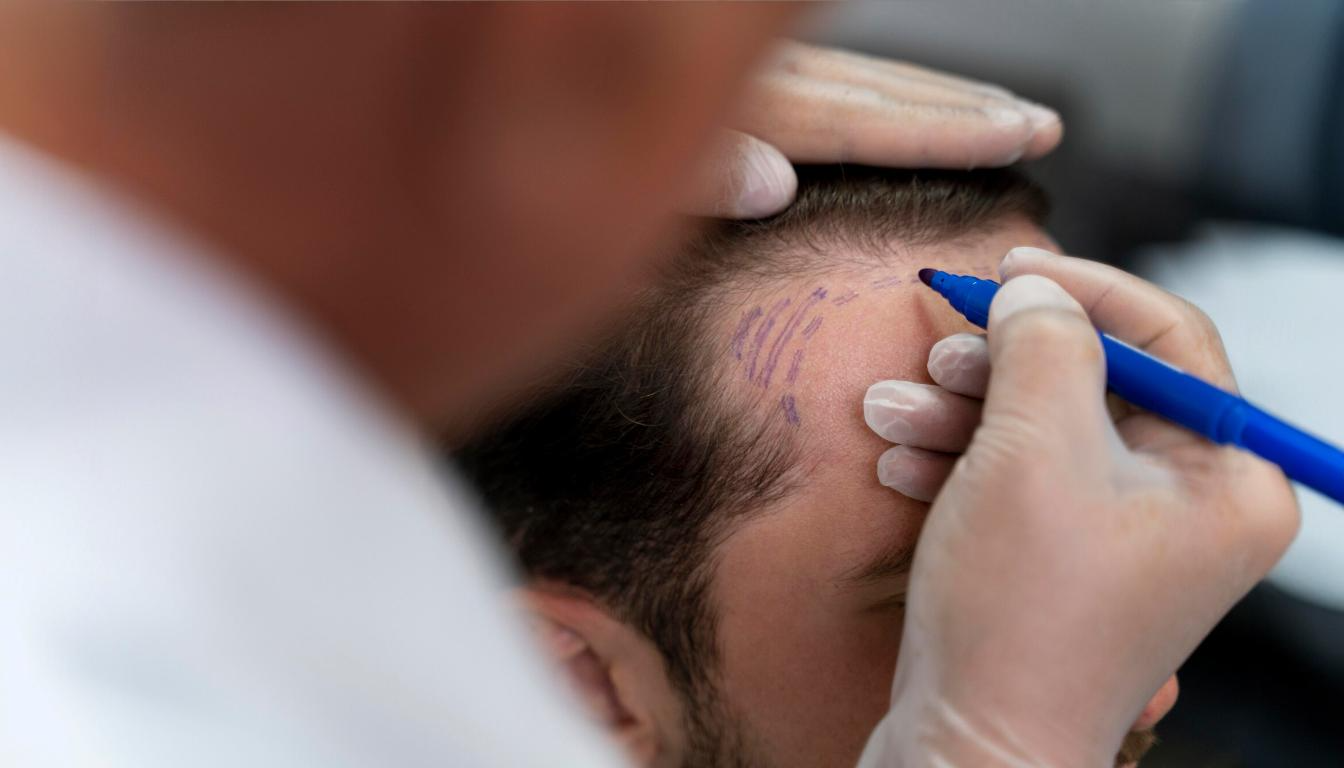
Get In Touch With Us
- Office 305, Third Floor Business Guild Complex, Law College Road, Pune, Maharashtra, India-411004
- +(91) 91755 50027
- +(91) 84476 40 660
- info@citc.co.in

“Alopecia” is a medical term for hair loss or baldness, and “areata” means that it occurs in small, random areas. Alopecia areata is an autoimmune disease that attacks your body’s hair follicles, causing patchy hair loss. Medications and therapies can help your hair regrow, though severe cases may not respond to treatment. Alopecia areata doesn’t typically affect your physical health. However, it can affect you psychosocially (how society and social groups affect your thoughts and emotions) and psychologically (how you think about yourself and your behavior). You may experience stress, anxiety, and depression. Your nails may also develop dents or pits (cupuliform depressions). They may make your nails feel coarse or gritty, like sandpaper. Alopecia areata can be unpredictable. In some people, their hair grows back but falls out again later. In others, their hair grows back and never falls out again. Each case of alopecia areata is unique. Even if someone loses all of their hair, there’s a chance that it’ll grow back.
There are many different classifications of alopecia areata. The classifications depend on the amount of hair you’ve lost and where you’ve lost it on your body. There are some common symptoms of alopecia areata including your scalp, facial hair, eyebrows, eyelashes, and body hair. The best skin care doctor at CITC diagnoses alopecia areata through a physical exam. They’ll ask about your medical history, including when you started noticing hair loss and whether you have a family history of alopecia areata or autoimmune disorders. They may also examine your nails. In rare cases patches won’t typically have any other symptoms, but, sometimes Itchy skin,Change in color, Develops visible changes.
Corticosteroids and Anti-inflammatory drugs are often used to treat autoimmune diseases. Minoxidil is a topical drug that treats male and female pattern baldness. It usually takes about 12 weeks of treatment before your hair begins to grow. Some side effects include headache, scalp irritation, and unusual hair growth.
Platelet-rich plasma: A healthcare provider removes blood from your body, processes it, and then injects it into your scalp to stimulate hair growth. Some side effects may include scalp pain and irritation, dizziness, nausea, and vomiting. There is no cure for alopecia areata, but there are treatments that can help hair regrow. These treatments include medications, corticosteroids, and light therapy. In some cases, hair may grow back on its own without treatment.
Free or low cost coverage adults with limited income recognised as a world renowned institution.
Recognised as a world renowned institution, you can consult any of our doctors by visiting our clinic.
Contact our reception staff with any medical inquiry at any time for low-cost coverage adults.
All medical aspects practice for family, our reception staff with any medical enquiry any time.
Contemporary, innovative and advanced technologies customized to your requirement
We have been providing quality care for several years, and are pioneers in several fields
See amazing transformation in your body, hair, face and skin through our cosmetic surgery
We believe in the responsibility of our profession and are committed to the best interests of our patients.
Our doctors are internationally recognized experts in their field, committed to providing the highest care.